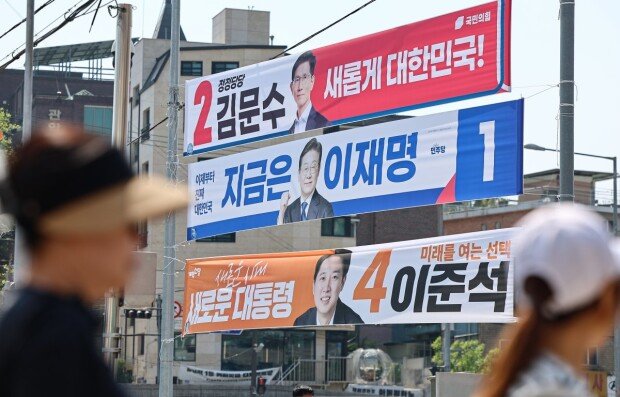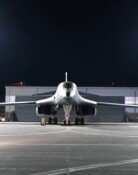Presidential candidates outline contrasting U.S. trade approaches
Presidential candidates outline contrasting U.S. trade approaches
Posted May. 17, 2025 07:26,
Updated May. 17, 2025 07:26

South Korea’s presidential contenders are proposing starkly different approaches to upcoming trade negotiations with the United States, centering on tariffs, defense cost-sharing, and economic cooperation.
Democratic Party candidate Lee Jae-myung said Friday that South Korea’s concessions should be based on specific, verifiable U.S. commitments—such as tariff reductions—and guided by the principle of reciprocity. “It is necessary to begin South Korea-U.S. consultations as soon as possible,” he stated in written responses submitted to the *Dong-A Ilbo*. He added that Seoul would likely request an extension of the 90-day reciprocal tariff grace period, set to expire June 8.
Lee also indicated support for a broader “package deal” in response to proposals raised during the Trump administration regarding liquefied natural gas (LNG) cooperation. He said he would pursue comprehensive collaboration in sectors with strategic potential, including shipbuilding, defense, energy, artificial intelligence, semiconductors, mobility, and intermediate goods.
However, Lee was cautious about reducing South Korea’s trade surplus with the U.S. as a bargaining chip for tariff cuts. “Tariff adjustments, easing of non-tariff barriers, and investment incentives must be conditioned on clear, verifiable U.S. commitments and mutual benefit,” he said.
People Power Party candidate Kim Moon-soo and Reform Party candidate Lee Jun-seok both opposed seeking an extension of the tariff grace period. Kim referenced the government’s so-called “July package,” saying, “It is unrealistic to expect the U.S. to grant South Korea an extension while excluding others.” He pledged an aggressive trade diplomacy campaign, including enhanced summit-level dialogue, from day one of his administration.
Kim said South Korea could consider increasing imports of U.S. LNG as part of a strategy to enhance energy security. On defense spending, he argued that if Washington seeks a greater financial contribution, Seoul should link the talks to modern weapons procurement to secure mutual gains. “It is crucial to assess profitability thoroughly and prepare for various scenarios,” he added.
Lee Jun-seok emphasized a strategic alignment with the U.S. in the global tech race. “We need an approach that demonstrates South Korea’s value as a key U.S. partner in the competition for technological dominance,” he said.
Lee also vowed to conduct bold top-down diplomacy with President Donald Trump. “If we can secure peaceful nuclear reprocessing technology from the U.S., it would bring us significantly greater benefits,” he said.
Hye-Ryung Choi herstory@donga.com







